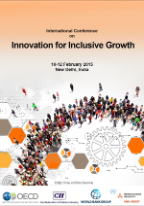Nehru Memorial Museum and Library
Public Lectures Series
Science, Society and Nature
Venue: Seminar Room, Nehru Memorial Museum and Library, Teen Murti House, New Delhi
Time: 3.00 pm
Dr. Kiran Asher,
Centre for International Forestry Research, Bogor, Indonesia.
'The Romance of Resistance and the Palitics of Rescue in Post-Development Alternatives'
Friday, 6th February, 2015
Dr. Nayanika Mathur,
Cambridge University, Cambridge, UK.
'Enter 'Climate Change': Of beastly encounters, cervine disappearances, and state categorisation in the Uttarakhand Himalaya'
Thursday, 4th March, 2015
Dr. T.R. Shankar Raman,
Natural Conservation Foundation, Mysore.
'Recasting the Nature Conservation Landscape: A Field Perspective from India's Tropical Rainforests'
Friday,20th March, 2015
Prof. Brij Gopal
Centre for Inland Waters in in South Asia, Jaipur.
'Turn the Rivers Dry to Make Deserts Bloom: Rapidly changing society-nature relationships'
Friday,27th March, 2015
Prof. C.N.R. Rao,
Jawaharlal Nehru Centre for Advanced Scientific Research, Bengaluru.
'Doing Science in India'
Friday, 3rd July, 2015
Mr. A.V. Balasubramanian,
Centre for Indian Knowledge Systems, Chennai.
'Conservation and Utilisation of Agrobiodiversity and Millets: The missing links in our quest for food and nutritional security'.
Friday, 17th July, 2015
Prof. Raghavendra Gadagkar,
Indian Institute of Science, Bengaluru.
'War and Peace: Conflict and cooperation in an insect society'
Friday, 31st July, 2015
Dr. Jayashree Ratnam,
National Centre for Biological Sciences, Bengaluru.
'Towards a Functional Understanding of the Savanna Ecosystems of Asia'
Friday, 7th August, 2015
Dr. Robin Vijayan,
National Centre for Biological Sciences, Bengaluru.
'Sky Islands of Western Ghats: Response of montane birds to multiple scales of patchiness'
Friday, 21st August, 2015
Prof. Purnendu S. Kavoori,
Azim Premji University, Bengaluru.
'Is the Future 'Feudal'? Imagining the social structure of sustainability'
Friday, 4th September, 2015
Prof. Madhumati Dutta,
Indian Institute of Engineering Science and Technology, Shibpur.
'Consumer Behaviour and Carbon Emissions: Lessons in policy'
Friday, 6th November, 2015
All are welcome.
Schedule: NMML Public Lectures Series "Science, Society and Nature" 2015
Further Details: NehruMemorial.Nic.In
